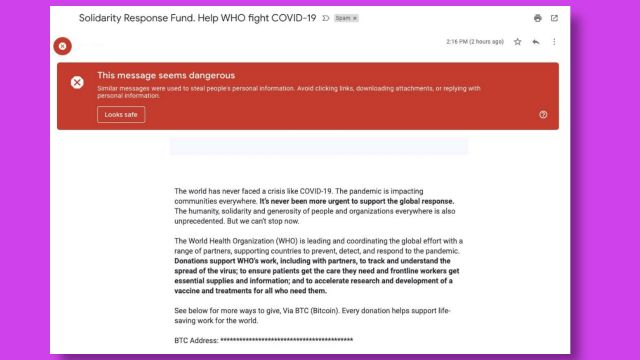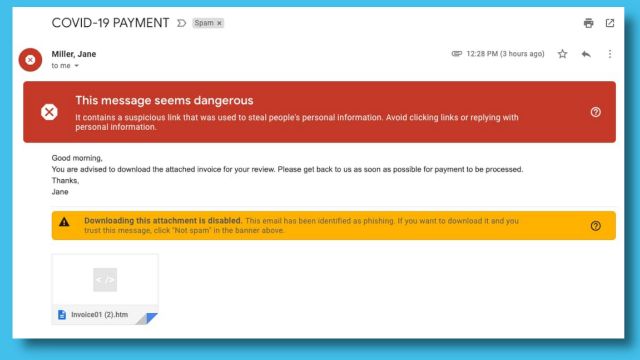Subscribe now and get the latest podcast releases delivered straight to your inbox.
Email scamming has always been an issue, but Google has seen an explosion in phishing emails since the COVID-19 pandemic started.
On any given day, Google blocks up to 100 million phishing emails. Lately, as much as 20% of these have been related to coronavirus.
Scammers have been using coronavirus to their advantage to try and trick users into giving up personal data, hoping that in this time of fear and uncertainty people will be more willing to share their personal information.
Users are being sent emails that impersonate major players in the coronavirus pandemic such as the World Health Organization (WHO) or local government officials offering fake support packages.

Luckily, Google has reported that its machine learning tools are able to block 99.9% of these types of emails from reaching users.
Unsurprisingly, Google isn’t the only company reporting an uptick in coronavirus-related phishing emails.
Barracuda Networks has seen a 667% increase in coronavirus related attacks since the end of February, while Menlo Security had a 32% increase in daily attacks between February 25th and March 25th.
How does this affect me?
If one of these emails slips through Google’s blocking system and ends up in your inbox you could potentially fall victim to one of these scams. It’s important to be aware of who the sender of the email is and to not click on any suspicious-looking links.
The US Secret Service has determined that with these types of scams the links are typically a Microsoft Office or WordPad files, so be especially wary of those links.

The emails you should be sending now
Now more than ever it’s important to communicate with your prospects and customers.
Of course, you wouldn’t be sending a fake email with malicious software meant to steal personal data, but as you create your own marketing campaigns, make sure others wouldn’t view your communication as negatively opportunistic.
Scammers are using the pandemic for personal gain by exploiting the current state of the world for their own objectives; make sure your marketing can't be accused of the same self-serving callousness.
You should always have your customer’s best interest in mind, but you need to make sure this is a top priority during these tougher times.
Now is the time to make sure you’re helping customers and being flexible with what their needs are. Everyone and every business is going through something different and it’s important for you to listen to them and be understanding.
Your marketing outreach must be helpful and empathetic, not salesy and tone-deaf.
Without a clear end date for the pandemic, this is something you’ll need to keep in the back of your mind for the foreseeable future as you build out your marketing strategies.
Remember to ask yourself “is this better serving my business or is it better serving my customer?” before finalizing any strategy you create.
And keep in mind that people are likely to be on-edge and guarded.


Order Your Copy of Marcus Sheridan's New Book — Endless Customers!

